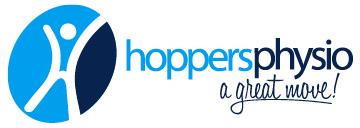Wry neck
Wry neck
Have you ever felt like your neck has ‘locked up’ and all of a sudden you can’t turn your head properly? It may have happened quite suddenly after you performed a seemingly inconsequential movement, or perhaps you woke up from a poor night’s sleep with sharp pain and an inability to look to one side. You may have experienced wry neck! Wry neck is a common neck complaint involving pain and stiffness in the neck joints, and spasm in the surrounding muscles. Your neck may feel normal at rest or when your head is held in one position, but as soon as you try to turn it you may get sharp, severe pain and be unable to move your neck through its usual range of motion. This can be quite debilitating and can impact upon your ability to carry out daily activities like going to work or driving a car.
Some of the features of wry neck include:
- Pain
- Restriction of movement
- Asymmetrical (one sided) symptoms
- Muscle spasm
Wry neck can be acute with a sudden onset, or progress more slowly. This depends on the type of wry neck you are experiencing. Two types of wry neck are facet wry neck and discogenic wry neck. The difference between these is that in the first type, the neck stiffness and pain stems from a locked/stuck facet joint, whereas in discogenic wry neck the problem is a cervical disc injury. Facet wry neck is more common and often occurs in people aged pre-teen to early thirties. Discogenic wry neck usually affects people between the ages of 35 and 60 years, and often these people experience some pain and limitation of their movement prior to developing wry neck. A locked facet joint is more common than a disc injury and generally responds well to treatment. Discogenic wry neck is usually slower to heal and if left untreated may progress to further pain as well as possible nerve compression.
Treatment for wry neck is often very successful and if administered early can reduce the amount of time you are suffering from pain and stiffness. After assessing your neck and establishing where your issue is, our experienced physiotherapists can utilise a range of treatment techniques to free up locked joints, and also perform soft tissue massage to help release the surrounding neck muscles.
It is important to work out the cause of neck pain and establish what kind of treatment may be best suited to you. Our friendly team here at Hoppers Physio can discuss your history and offer a full assessment of your neck, followed by hands on treatment tailored to your individual needs. They can also provide information and exercises to normalise and strengthen your neck and free up your movement. As well as aiding your initial recovery, this is also designed to reduce the likelihood of your wry neck recurring.
If your neck pain is due to a more extensive accident or injury, such as a car accident, or if you are experiencing numbness or tingling in your arms or legs it is important to also speak to your doctor. You may require further assistance regarding pain management or further testing. If you are interested to know more or wish to book an appointment call us today on (03) 9749 5110.

